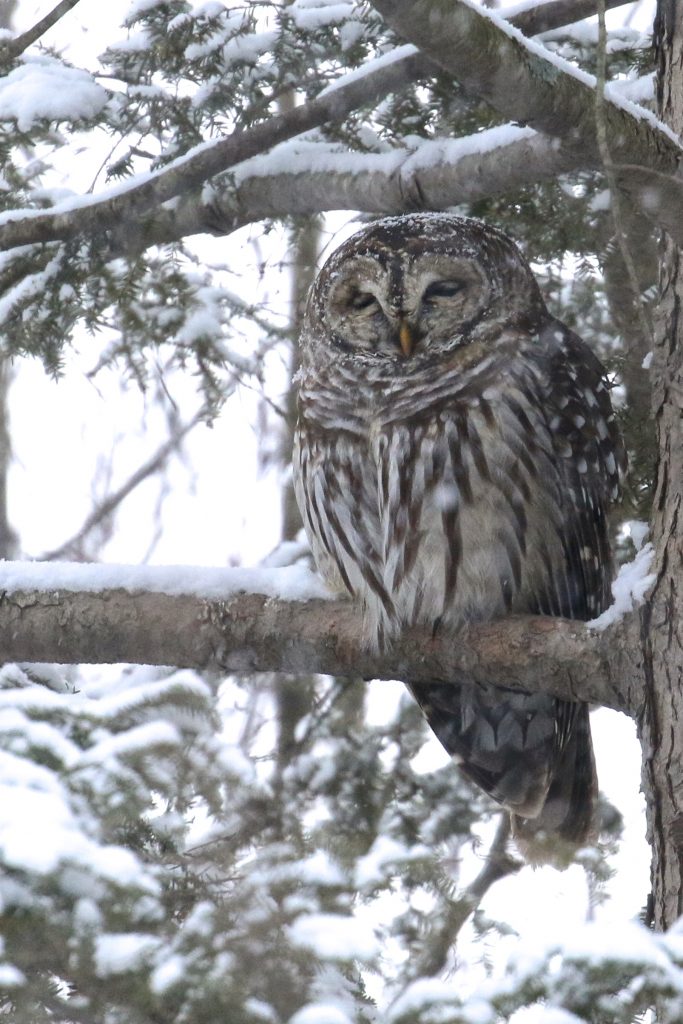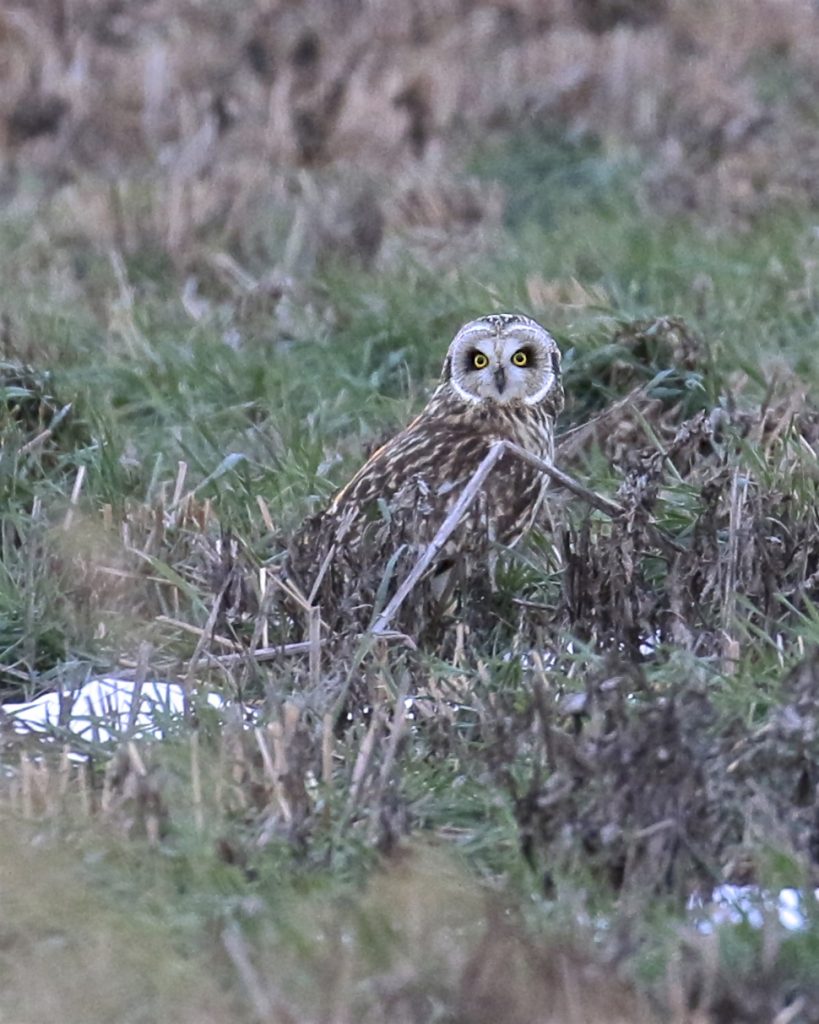
WHY DO WE BIRD?
This is a question that I ask myself from time to time to time. I’ve thought about this in terms of the big picture – as in birders in general, and also in terms of myself – what drives me to be out birding nearly every single day and how does that compare to other birders? To try and get some answers, I emailed a questionnaire to a number of birders that I know and I received responses from 11 avid birders.

Based on the responses received, it appears that “getting back to nature” is the main reason most birders bird. Over half of the respondents included something along these lines in their answers to the opening general question of why they bird. Terms such as “escape”, “peaceful time”, and “relaxation” were used to describe the experience. At the end of the questionnaire, I asked directly about this aspect of birding, and it was nearly unanimous that this was an important part of birding, and 8 of the eleven considering it either the most important or very important. Karen Miller wrote that getting back to nature “…helps you remember what’s important in life.” Additionally, I think it goes hand in hand with stress reduction, which was inferred by most and mentioned specifically by 4 respondents. According to Scotty Baldinger “When I was still working it was the great stress reliever being out in the field and at one with nature. Now that I’m retired it still is as good.”, while Judy Cinquina wrote “Birding, being outdoors, even just in my own yard, clears my mind of all the detritus that seems to get caught up in there and keeps me sane.”

I would consider a “sense of adventure” or “excitement” as the next most popular reason for birding. Four of the 11 respondents refer to this concept in their in their answers to the opening general question of why they bird and 7 refer to this idea elsewhere in their answers. You can add me to the list, as I know that this has always been a big part of birding for me. Walter Eberz put it very well: “When I was introduced to birding, I quickly felt the excitement of finding a species for the first time. I think that sense of adventure is what drew me into birding.” Birding can be and is often very exciting, as Kyle Dudgeon wrote: “there’s always something new around each and every corner”, and I also like Bill Martocci’s take on it: “It may be my natural hunting instincts being fulfilled without killing an animal.” For many, this excitement is linked directly to seeing rare or unusual birds. I asked the respondents how important it was to see and find rare or unusual birds which was nearly unanimously considered important. Most indicated that it was exciting and enjoyable; John Haas wrote “I have been birding for 25 years and seeing rarities and observing different birds and their behaviors help keep the hobby fresh and exciting for me.” Sharing the excitement appears to factor in as well and was mentioned a few birders. Ken McDermott writes: “Part of the fun and rewards of birdingis that we get to see species that we have never seen before whether on ourLife/State/County/Home/Year list they are all enjoyed. The “who finds it” is not so important as seeing it. If one DOES find a special bird a huge portion of the enjoyment is sharing it with other interested birders.”

Other significant aspects of birding that were part of the questionnaire or raised in the answers include: participating in citizen science, the social aspect, the study of birds and bird behavior, and bird photography.
Citizen Science: All of the respondents keep birding lists of some sort, and all but one are using eBird. For most, the importance of Citizen Science for the birds is recognized, but it does not play a large role in their reasons for birding. Curt McDermott speaks to this: “I am a supporter of Citizen Science Projects, such as E-Bird, Great Backyard Bird Count and Hawk Watches. Information gathered by participation in these projects, may help to ensure that birding and birds will stand the test of time.” However, only Lance Verderame and John expressed that CS was VERY important to their birding. Lance sums it up well: “As birders our input into eBird is an extremely valuble history of records that could point out key staging and resting habitat that needs protection.” And, on a different note, Kyle brought up a point that I found interesting – that people are using eBird in a way that directly affects the birds negatively: “People abuse it now. Some things (i.e. nest locations, owl locations. Endangered species locations, etc.) were not meant to be reported and ultimately are ruined due to people.”
Study of Birds/Behavior: I think we all engage in this to a certain extent while birding without really realizing it. I neglected to raise this issue in the questionnaire, but both Lance and Judy brought it up in their responses. Judy wrote about a recent change in her birding: “Rare or “Life Birds” used to be a very important aspect of my birding until recently. Now I’m happy to just see bird behavior that I’ve never seen before.”
Social Aspect: Responses indicate that the social aspect of birding is enjoyable but not highly important. AND, birding in large groups was mentioned by 4 as a negative experience. Small groups or birding alone seem to be the preference. Denise Ferrell seems to speak for a lot of birders when she wrote “I enjoy small groups where EVERYONE is working to find birds AND I also enjoy birding by myself. I detest birding in large groups. They tend to turn into chat sessions with only a few people doing all the work finding the birds.”
Bird Photography: This aspect may have had the most diverse response. Two respondents take photos for records or identification purposes only and 3 do not take bird photographs at all. But, for the remaining 6 respondents, photography is an important, integral part of birding. I, of course, put myself into this category as well. All of the birders in this category share their photos by publishing, be it for a blog, website, or social media. For everyone in this group, the words of Bill may resonate: “It is clearly the #1 reason I bird. I rarely if at all go out without my camera. I will post great shots of birds or rare finds on group sites on Facebook. But I do keep a gallery of birding photos that few if anyone sees regularly.”

So, I’ve touched on some of the thoughts on my own birding above, but will elaborate here. I can remember growing up in suburban Long Island. My siblings and I (my brother Chris especially), used to absolutely love all the nature shows. I particularly remember one about the wild dogs of Africa. It was exciting and fascinating to see all the amazing animals all over the world. But, in my mind, that was elsewhere, not here, especially not in the neighborhood of Holtsville where we grew up. Meanwhile, I couldn’t have been more wrong. Think about all the amazing birds on Long Island! They were all out there, in Holtsville and at the beaches and lakes not very far away. Birding has given me the opportunity to live out the adventures I dreamt about while watching those nature shows as a kid. Who knew you could find over 200 species of birds in Orange County in a single year? It still blows my mind! And because it blows my mind, I am compelled and I enjoy very much sharing it here on this blog.
Getting back to nature another huge aspect for me. Being out in the field gives me great enjoyment as well as life-saving stress relief. I cannot imagine my life without it and I think that would remain so even if I wasn’t birding. This ties into the social aspect of birding. I particularly enjoy getting out by myself and really getting “lost” out there, but that being said, I do enjoy birding with smaller groups and I have made many really great friends through birding. The exception to this (and Judy mentioned it in her response as well), is hawk watching. I’m not sure why this is different, perhaps because we have such a great group up at Mount Peter, but I really enjoy my time up there; the more birders the merrier.
Regarding bird behavior, I think I am just starting to scratch the surface here. I think that as I become more experienced and learn more, the exploration of bird behavior will become more important to me. And when it comes to Citizen Science, like many birders I am happy to contribute and I see the importance but it is not a deciding factor in my daily birding.
As for rare or unusual birds, for me this is a driving force. It links directly to the sense of adventure or excitement I am looking for in my birding. I find it very exciting every time I see any bird that is out of the ordinary; it can just be a personal first of year bird and I will get jazzed. And, I’ve always wanted to be the one to find the birds. Ever since I became a member of the Mearns Bird Club and I started getting notifications, I thought to myself that I wanted to be the one finding the birds. It is exciting, satisfying, and great fun to share a good bird.
**PLEASE FEEL FREE TO LEAVE A COMMENT ON THIS POST; I AM REALLY CURIOUS TO FIND OUT MORE ABOUT WHY EVERYONE IS OUT THERE BIRDING! Thanks.
And, finally, a huge thanks to all the birders that help with this post, I, of course, could not have written it without them:
Scotty Baldinger


Matt,
What a wonderful synopsis! You bring out so many wonderful aspects of what I consider the greatest possible hobby. I am humbled to be mentioned among a list of wonderful birders. Thank you for going to the trouble of investigating so many aspects of birding! John
Thanks John, I think it’s the best too. I’m looking forward to the next adventure. Matt
Nicely done, Matt. Great job at compiling all this information and providing a thoughtful, informative summary. IMHO birding gets more fun and exciting every day!
Thanks Karen, it was interesting to get all the responses in – many similarities and some interesting takes from everyone. And, I agree that it gets better every day. Matt